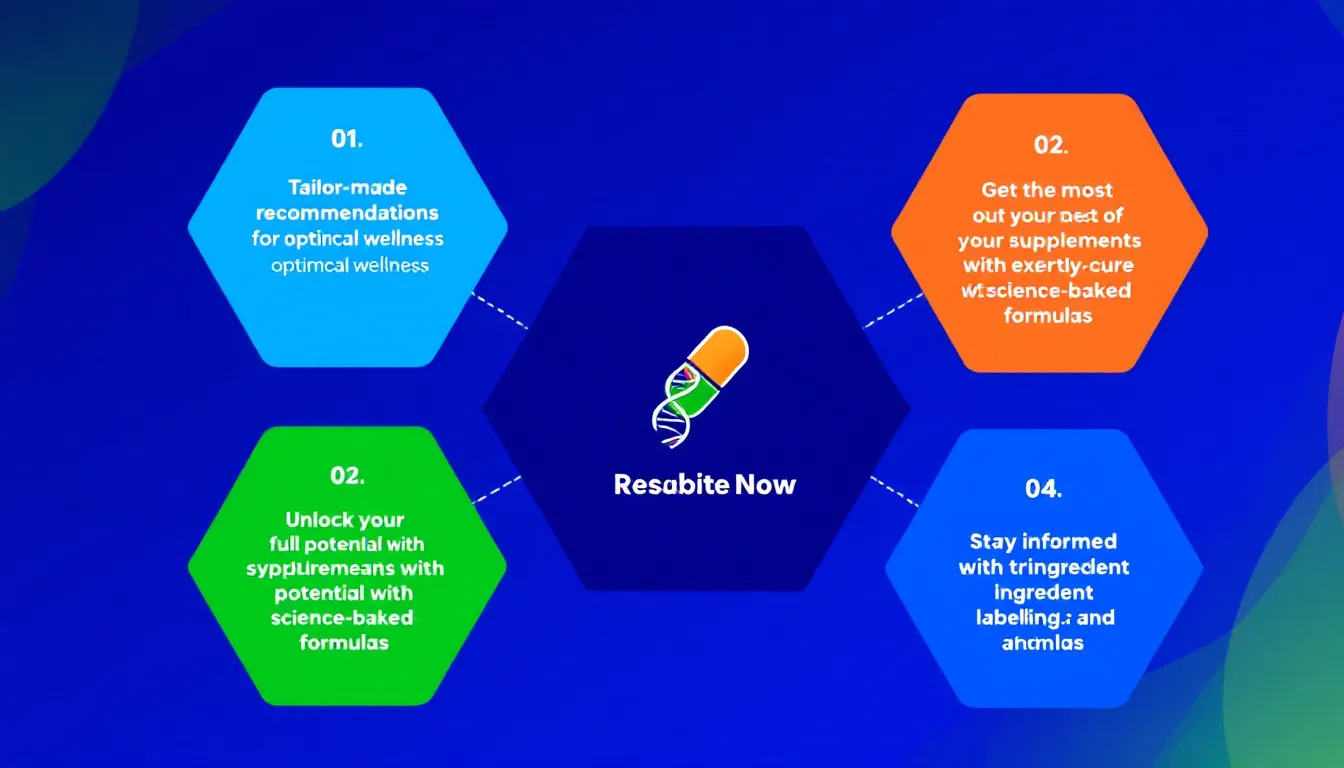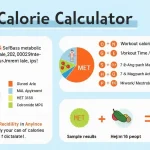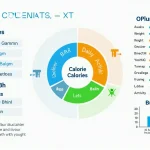Is this tool helpful?
How to Use the Supplement Recommendation Tool Effectively
Follow these steps to receive accurate, personalized supplement suggestions tailored to your fitness or health goals:
-
Specific Goal: Clearly state your main fitness or health objective. Use specific and measurable terms to get better recommendations.
- Example 1: “Boost endurance to complete a 10K run in under 50 minutes within 4 months.”
- Example 2: “Improve joint flexibility and reduce inflammation for daily yoga practice.”
-
User Profile (Optional): Enter relevant personal details to customize your supplement plan. Include:
- Age, for example: “35 years old”
- Gender, such as: “Male”
- Fitness level: “Advanced, weightlifting 5 times weekly”
- Health conditions: “Mild asthma, controlled with medication”
-
Dietary Restrictions or Preferences (Optional): Specify any dietary needs to ensure supplement compatibility. For example:
- “Pescatarian, consumes fish but no other meats”
- “Low-sodium diet due to hypertension”
-
Current Supplements (Optional): List any supplements you already take to avoid overlap and unsafe combinations. For instance:
- “Vitamin C 1000mg daily, iron supplement”
- “CBD oil, turmeric capsules”
- Submit Your Request: Click the button to generate your personalized supplement recommendations based on the input you provided.
After submitting, you will receive a detailed, tailored guide explaining which supplements support your unique goal, factoring in your profile, dietary needs, and current supplement use.
What Is the Supplement Recommendation Tool? Purpose, Definition, and Benefits
The Supplement Recommendation Tool is an AI-driven system designed to provide personalized supplement advice based on your specific fitness or health objectives. It combines your input with extensive scientific evidence and nutrition data to offer relevant, safe, and effective supplement suggestions.
Purpose of the Tool
This tool aims to replace generic supplement advice with customized recommendations tailored precisely to your needs. It helps you make informed choices that align with your health status, goals, and lifestyle.
Key Benefits
- Personalized Recommendations: Suggestions match your unique goals, body characteristics, and dietary habits.
- Science-Based Advice: Recommendations rely on up-to-date nutritional research and expert knowledge.
- Consideration of Current Supplements: Avoids duplication and reduces risks linked with combining multiple products.
- Dietary Compatibility: Aligns supplement choices with your specific restrictions or preferences.
- Focus on Safety: Highlights any possible interactions or side effects to promote safe use.
- Educational Content: Helps you understand the benefits and correct usage of each supplement.
Practical Use Cases of the Supplement Recommendation Tool
You can use this tool across various scenarios where personalized supplement guidance adds value:
1. Athletes and Active Individuals
If you’re training for better performance, recovery, or endurance, the tool identifies supplements supporting your athletic goals.
- Example: A cyclist aiming to improve sprint speed might receive recommendations for beta-alanine, citrulline malate, and electrolyte supplements.
2. Weight Loss and Metabolic Health
The tool suggests supplements that enhance fat loss, regulate appetite, and support metabolism while preserving muscle mass.
- Example: Someone targeting fat loss may get advice on green tea extract, conjugated linoleic acid (CLA), and whey protein.
3. Healthy Aging and Joint Support
If you want supplements to improve bone health, joint mobility, or cognitive function as you age, this tool recommends evidence-based options tailored to your needs.
- Example: An older adult might receive suggestions for glucosamine, vitamin D3 with K2, and omega-3 fatty acids.
4. Managing Dietary Restrictions
The tool ensures supplements comply with your dietary limitations, making it easier to maintain your nutrition plan safely and effectively.
- Example: If you follow a paleo diet, you’ll get supplement choices free of grains and legumes.
Examples of Supplement Recommendations for Common Goals
Scenario 1: Endurance Improvement for a Middle-Aged Male
Input:
- Goal: “Complete a half-marathon in under 2 hours within 5 months”
- User Profile: “45 years old, male, intermediate fitness, running 4 times per week”
- Dietary Restrictions: “Gluten-free diet”
- Current Supplements: “Vitamin B complex, fish oil”
Expected Recommendations:
- Beetroot Powder: Enhances blood flow and endurance; consume 6-8 grams daily.
- Beta-Alanine: Reduces muscle fatigue; take 2-5 grams daily in divided doses.
- Electrolyte Complex: Supports hydration and muscle function; use during long runs.
- Gluten-Free Protein Powder: Aids muscle recovery; consume post-workout.
Scenario 2: Joint Support for a Female with Osteoarthritis
Input:
- Goal: “Reduce joint pain and improve mobility within 3 months”
- User Profile: “60 years old, female, beginner fitness level”
- Dietary Restrictions: “Lactose intolerant”
- Current Supplements: “Calcium citrate”
Expected Recommendations:
- Glucosamine and Chondroitin: Supports cartilage repair; typical dose 1500 mg glucosamine and 1200 mg chondroitin daily.
- Omega-3 Fatty Acids (Algal Oil): Reduces inflammation; 1-2 grams daily.
- Turmeric Extract (Curcumin): Natural anti-inflammatory; 500 mg twice daily with black pepper extract for absorption.
- Lactose-Free Collagen Peptides: Supports joint tissue health; 10 grams daily, mix with beverages.
Why Use This Personalized Supplement Recommendation Tool?
- Save Time and Money: Find relevant supplements quickly without unnecessary purchases.
- Target Your Specific Needs: Receive advice that directly supports your individual goals.
- Enhance Safety: Avoid potentially harmful supplement combinations or conflicts with medications.
- Respect Your Diet: Get suggestions that suit your eating habits and dietary restrictions.
- Stay Informed: Learn benefits, dosages, and precautions for each supplement you consider.
- Easily Update Recommendations: Adapt your supplement strategy as your goals or circumstances change.
- Boost Confidence: Make supplement choices based on verified scientific evidence.
By using this tool, you gain personalized insights into supplements that support your journey towards improved health, better fitness results, and safe nutrition practices tailored exactly to you.
Important Disclaimer
The calculations, results, and content provided by our tools are not guaranteed to be accurate, complete, or reliable. Users are responsible for verifying and interpreting the results. Our content and tools may contain errors, biases, or inconsistencies. Do not enter personal data, sensitive information, or personally identifiable information in our web forms or tools. Such data entry violates our terms of service and may result in unauthorized disclosure to third parties. We reserve the right to save inputs and outputs from our tools for the purposes of error debugging, bias identification, and performance improvement. External companies providing AI models used in our tools may also save and process data in accordance with their own policies. By using our tools, you consent to this data collection and processing. We reserve the right to limit the usage of our tools based on current usability factors.







